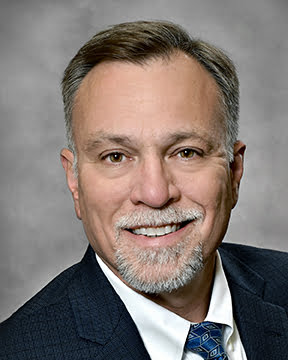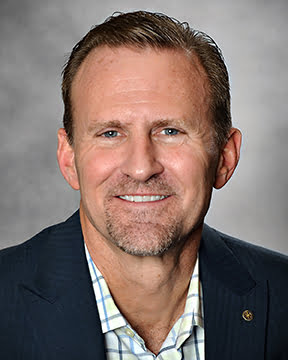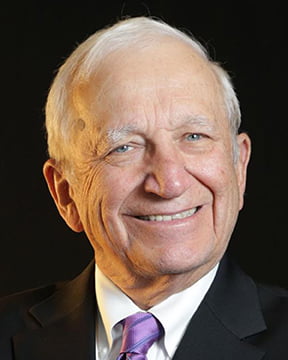Changing expectations reshape hiring, company culture

Many of today’s employees seek more than just a steady paycheck. They desire a workplace that aligns with their values, provides growth opportunities and fosters a healthy work-life balance.
“The employment landscape has changed greatly in the last few years,” said Jokima Hiller, professor at Indiana University Northwest’s School of Business and Economics. “Employers are looking for a type of employee that no longer exists or is in short supply. And employees are looking for opportunities that don’t exist yet or are in short supply.”
Hiller said these expectations can lead to missed opportunities.
“This mismatch has employers passing up candidates who may not have all of the credentials but are eager to learn, and employees passing up opportunities that may not be in their career paths but are a great resume builder,” she said.
Employment gaps have impacted almost every industry. As of May 2023, there were 10.1 million job openings across the United States, according to the U.S. Bureau of Labor Statistics. Indiana reported 171,000 job openings in March 2023.

As workplace dynamics evolve, employers in the Region are adapting. Because the success of any organization hinges on its employees, businesses are transforming to meet the changing expectations of today’s workforce. They are rethinking the way they do business, how they hire and who they hire.
“The challenges of finding and attracting new employees — both at entry levels and for positions requiring prior experience — have required us to be more prudent than ever in the client work that we keep, as well as the new client work that we pursue,” said Barry Hall, CPA at Kruggel Lawton CPAs in South Bend. “We are working to be more sensitive than ever to over-burdening our team members or failing to deliver on our commitments to clients.”
Smarter hiring
Many area businesses have modified their hiring practices. They are recognizing that starting salaries and pay increases are key components of an employee’s job search requirements. Businesses also are reshaping job descriptions and positions.

“We have been forced to get more creative and innovative in our methods to generate candidates, which in some cases requires us to invest much more time and money than in previous years,” said Terry Bush, director of HR services at Kruggel Lawton CPAs.
More companies are also promoting employees from within.
“There’s not always a perfect fit, but our initial thought in the hiring process is always, ‘Do we have someone here who fits this role?’” said Stacy Jayjack, director of operations at Meyers Glaros, an insurance agency in Merrillville. “We have also found the majority of our employees by sharing the job posting with our employees and seeing if they know anyone who would be a good fit.”
Referrals have become increasingly important. Kruggel Lawton CPAs offers a bonus if they hire somebody referred internally.
“A referral from one of our existing employees — and a relationship we can build on to explore hiring someone — is a plus,” Bush said.
Creative solutions

Companies are thinking outside the box when it comes to hiring, particularly when traditionally well-qualified candidates are unavailable.
“With the ongoing labor shortage, I think a lot of companies have had to be more open-minded when making hiring decisions,” Jayjack said. “It’s not always about a resume or having years and years of identical experience. If someone has the right personality, the right skills and a certain level of passion, they can be taught the job. We have some incredible employees who came from all kinds of industries.”
Employers are playing the long game and hiring people who can grow into the position. Prospective employees may have unrelated education or experience but want to make a career change. This requires employers to be ready to teach and develop those abilities.

“Soft skills are extremely important. If our employees can’t work effectively as both individuals and as a team, everything suffers,” Jayjack said. “Any time we make a hiring decision, good communication, time management, organization and people skills are at the top of our must-have list.”
As jobs increasingly rely on technology, many employers are seeing personal skills as key.
“Good communication skills are more important as the ability to send a clear, meaningful message from technically produced data is what helps a business be more successful,” said Terry McMahon, CPA at McMahon & Associates in Munster.
Workplace culture
Employers also are struggling to retain employees. In Indiana, from March 2022 to March 2023, an average of 141,000 employees were hired per month and an average of 95,000 employees resigned per month, according to the U.S. Bureau of Labor Statistics.

Given these numbers, employers are spearheading change by building a strong company culture to attract and retain employees. Healthy company culture and good benefits are prerequisites for employees nowadays.
“The foundation of company culture has shifted to a ‘while we aren’t family, we do care’ environment,” Hiller said. “Potential new hires want to know if your company has made that shift.”
Meyers Glaros is one of many success stories in the Region. Within the past few months, it added six employees with no turnover. Company culture has played a role.
The company emphasizes open communication, so employees feel comfortable coming to management with work and personal problems. They also send out weekly anonymous surveys using OfficeVibe, an app that helps capture employee feedback about work relationships, job satisfaction, wellness and personal growth.

“For me, something really important with company culture was acceptance and recognition of employees as people, rather than bodies getting a job done,” said Brooke Telesky, Meyers Glaros’ recently hired marketing assistant. “I work best in an environment where I don’t feel like I have to hide my personality and what makes me, me. When management and others in the office try to get to know me as a person, that’s when I know I’m being valued for who I am and what I bring to the team culture, not just the work I do.”
Strong, positive, and meaningful relationships are the No. 1 factor in retaining employees, Bush said.
“If someone has friends with whom they work; if the owners/managers demonstrate care for them; and if they feel a part of multiple communities within the organization, they are less likely to depart,” he said. “We have the advantage of forming strong relationships with our clients; other business professionals we work with to serve the same clients; and nonprofit and community organizations, all of which enhance ‘stickiness’ with our employees.”
Prospective employees also are looking to work for organizations that reflect their values. This consideration was key for Mike Johnston, Meyers Glaros’ newest business insurance adviser. Johnston had just started his insurance career when pandemic regulations kicked in, and he found himself working from home. The experience reshaped the way Johnston thought about work flexibility.

“After COVID regulations started to lift, I made the decision to switch to an independent agency. I chose Meyers Glaros because they’ve been a pillar of the community since 1916,” Johnston said. “They have knowledge, experience, culture and relationships with high-quality insurance providers. After being here for a month, I’m so glad I made this decision. The culture and team atmosphere they’ve established at the agency is key to their success.”
Finding balance
Burnout and stress have become pervasive in today’s fast-paced work environments. Prospective and current employees are placing a higher value on maintaining a healthy work-life balance. Businesses that show a commitment to employees’ overall well-being not only help retain talent but also attract new hires.
According to Hiller, employers are adjusting by making changes to their benefits offerings, including adding employee assistance programs, allowing mental health days as a separate time off category and making annual vacation time mandatory.

“As long as they can get the job done professionally, ethically and do their best for the client that is what matters,” said Aaron McDermott, president and co-founder of Latitude Commercial, a real estate brokerage and property management firm in Crown Point. “It also promotes overall well-being and mental health by our employees being able to recharge, relax and engage in activities outside of work that bring them happiness. In the long run it helps prevent burnout, reduces their stress and improves overall job satisfaction.”
Meyers Glaros now allows employees to work remotely a few days a week. The company has no formal number of vacation days.
“We never want employees to feel that their job is everything,” Jayjack said. “As long as the policy is not being abused, employees may use their own discretion and take the days that they need for vacation, personal issues, illness, etc. If someone’s workload is getting too heavy, we shift tasks around, re-evaluate procedures or hire additional employees.”
Growth opportunities
Today’s employees are often eager to grow professionally and acquire new skills.
“We try to bring in employees that are looking for a career and not the ones looking for a job,” McDermott said. “This business is very difficult to get started but can be rewarding if you put the time into it. We make it a point to emphasize that point during the hiring stages so that both sides have an understanding of what the path looks like for the first couple of years.”
More companies are offering various avenues for skill enhancement, such as mentorship programs, internal training initiatives and tuition reimbursement. By providing these opportunities, employers are not only developing a capable workforce but also are demonstrating their commitment to employee growth and career advancement.
It is important “to integrate key people more into the direction and future of the firm,” McMahon said. This consistency often helps the company’s bottom line and improves the company’s prospects.
“We are in a ‘people’ business, and when our employees are happy people and great workers, that trickles down to our clients,” Jayjack said.
Read more stories from the current issue of Northwest Indiana Business Magazine.

